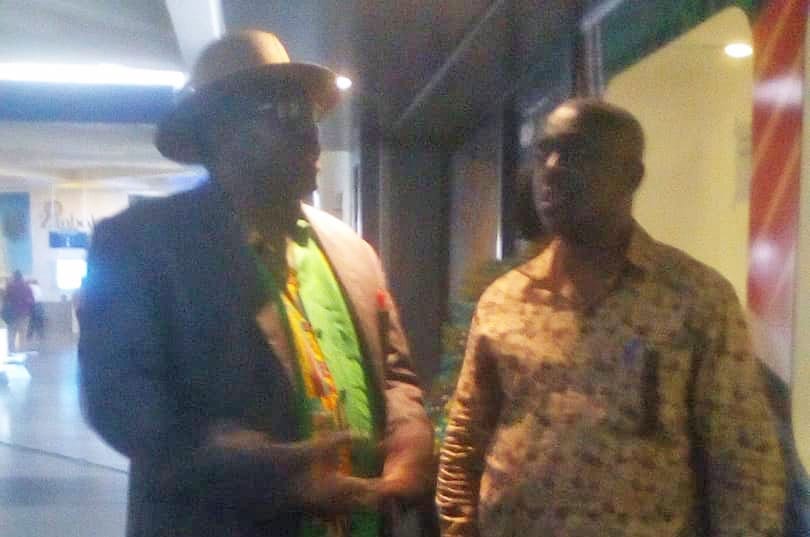
Feb 26, 2019
Hours after state security agents forcibly removed and detained ITUC-Africa Secretary General Kwasi Adu Amankwah in Harare, Zimbabwe, Amankwah was released and allowed to continue his official visit, according to the Zimbabwe Congress of Trade Unions (ZCTU).
State security agents took Amankwah to Robert Mugabe International Airport in the early morning hours today where he was held for nearly 12 hours without access to a lawyer. Global condemnation over the action and the intervention of ZCTU legal team resulted in his release, says ZCTU. Union leaders confirm he was not injured while in detention, but say he was never given a reason for his detention.
Amankwah was set to meet with ZCTU leaders and representatives of the International Labor Organization (ILO) and employer groups and had just arrived at his hotel when state security showed up. Other ITUC representatives from Brussels who sought to travel to Zimbabwe with Amankwah were denied visas.
Among those condemning Amankwah’s detention are the three largest trade unions in Africa: the Central Organization of Trade Unions-Kenya (COTU-Kenya), the Congress of South African Trade Unions (COSATU) and the Nigerian Labor Congress.
The regionwide union organization, the Southern Africa Trade Union Coordination Council (SATUCC), also condemned the action and strongly urged the government “to stop interfering in trade union work and criminalizing trade union activities and actions.”
Amankwah’s detention follows protests by thousands of Zimbabweans over a 150 percent fuel price hike and the arrest and release of ZCTU Secretary General Japhet Moyo, President Peter Mutasa and dozens of others who now are restricted from travel and must check in with police.
In a statement, ZCTU calls on the government to “prioritize dialogue instead of resorting to cowardly intimidatory tactics where it feels there are discrepancies.”
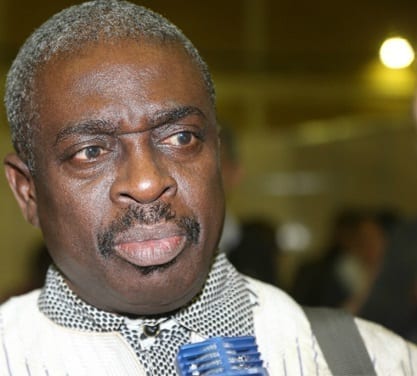
Feb 26, 2019
Kwasi Adu Amankwah, general secretary of the African Regional Organization of the International Trade Union Confederation (ITUC-Africa), was forcibly taken from his hotel at 2 a.m. today in Harare, Zimbabwe, where he had just arrived.
Amankwah was set to meet with leaders of the Zimbabwe Trade Union Confederation (ZCTU) when state security agents took him to Robert Mugabe International Airport, where he has been held for hours.
Officials refused to allow a lawyer from ZCTU to see Amankwah at the airport, according to ZCTU.
“It’s a sad development,” ZCTU President Peter Mutasa told the media. “We are in trouble as human rights defenders and trade unionists.”
Other ITUC representatives from Brussels who sought to travel to Zimbabwe with Amankwah were denied visas.
In addition to the solidarity visit to ZCTU, Amankwah was scheduled to meet with the Zimbabwe Ministry of Labor and representatives of the International Labor Organization (ILO) and employers’ federation. Amankwah has not been charged nor informed of the reason for his detention, according to ZCTU.
“It is not clear why such a senior trade union leader was detained at his hotel in the early morning hours and whisked away to the airport without his belongings—and even denied food brought to him by his lawyer and trade union colleagues as he was detained at the airport,” says Solidarity Center Africa Region Director Hanad Mohamud. “This after lawfully entering Zimbabwe. Why is Kwasi being targeted like this?”
In January, after tens of thousands of Zimbabweans protested a 150 percent fuel price hike, ZCTU Secretary General Japhet Moyo and Mutasa were arrested on charges of subversion and beaten in detention. They since have been released but are restricted from travel and must check in with police.
The January crackdown on worker rights’ activists follows the arrest and release of Moyo, Mutasa and 33 other union leaders in October, as government officials attempted to end a nationwide protest against a financial tax increase and rising prices. Some union activists were beaten, ZCTU Harare offices were cordoned off by more than 100 police, and ZCTU leaders not already in jail were forced into hiding.
In a letter to Zimbabwe President Emmerson Mnangagwa, ITUC-Africa asks for Amankwah’s release and “an unreserved apology for this action” from the Zimbabwe Department of Immigration.
The Congress of South African Trade Unions (COSATU) is among unions around the world decrying Amankwah’s detention and likely deportation, condemning the move “in the strongest terms” and demanding his immediate release and freedom to meet with ZCTU and others.
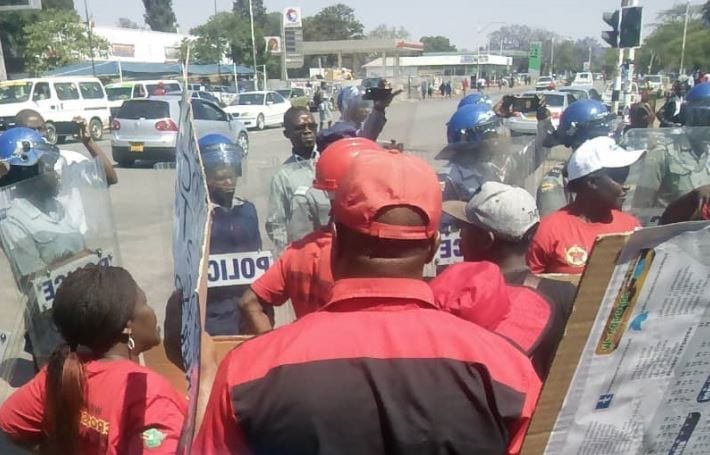
Jan 23, 2019
A government crackdown on citizens who last week protested a 150 percent fuel price hike escalated Monday with the arrest of Zimbabwe Congress of Trade Unions (ZCTU) Secretary General Japhet Moyo, charged with subversion for “mobilizing the nation to participate in anti-fuel hike protests.” Violent clashes blamed by human rights organizations on the army and police left 12 dead and 320 injured.
Prior to Moyo’s arrest, ZCTU President Peter Mutasa was forced into hiding by a police break-in at his home during which his brother was reportedly assaulted. Mutasa, who was away from his house during the break-in, remains in hiding this week, forcing ZCTU staff to avoid their offices for fear of police seeking his whereabouts, according to union members who spoke with the Solidarity Center.
“We call upon the government to respect labor rights and stop all forms of intimidation and harassment against trade unionists,” said ZCTU today in a press release.
The Zimbabwe Human Rights Commission found that torture of protesters by government forces—consisting mostly of “indiscriminate and severe beatings”—has been widespread. The situation remains tense this week, with soldiers patrolling the streets in most cities, towns and high-density residential areas.
ZCTU has faced other threats from authorities in recent months as Zimbabwe’s economy flounders and inflation and price hikes further complicate Zimbabwean workers’ lives. Mutasa and Moyo—along with 33 other trade unionists—were arrested and later released in October last year during an attempt to stop a national workers’ protest against a financial tax increase and rising prices. Some trade unionists were beaten, ZCTU Harare offices were cordoned off by some 150 police and ZCTU leaders not already in jail were forced into hiding.
The majority of Zimbabwean workers eke out a living in the informal economy, struggling to survive on less than $1 a day. Those with formal jobs often do not fare well either. A 2016 study by the Solidarity Center found that 80,000 workers in formal jobs did not receive wages or benefits on time, if at all. In many cases, they made only enough to get to work.
Update: On January 25, 2019, ZCTU President Peter Mutasa presented himself for arrest in the company of his lawyer Alec Muchadehama.

Oct 14, 2018
Zimbabwe Congress of Trade Unions (ZCTU) President Peter Mutasa and Secretary General Japhet Moyo, along with 33 other trade unionists who were arrested, and some beaten Thursday, were released from jail Saturday. The violent action by police was designed to prevent a national workers’ protest against rising prices and a financial tax increase. Some 150 police cordoned off the Harare offices of the ZCTU. Senior leadership of the ZCTU not already in jail were forced into hiding.
“This is unacceptable. It violates the foundations of democratic societies: freedom of association, assembly and speech. The global labor movement and anyone who cares about worker and human rights are rightly outraged,” said Solidarity Center Africa Regional Program Director Hanad Mohamud.
ZCTU was preparing to lead a national demonstration to protest a new transaction tax as well as rising prices and shortages of basic goods and fuel. Workers say the new tax would further hurt the country’s already impoverished citizens.
The AFL-CIO, International Trade Union Confederation (ITUC), Southern African Trade Union Coordination Council (SATUUC) and ZCTU condemned the attack. “It is saddening that once again the workers of Zimbabwe have been denied the right to organize, assemble and freely express themselves barely two months after the swearing in President Emerson Mnangagwa, who proclaimed a new dispensation for the people of Zimbabwe and promised transformation from the previous President Robert Mugabe brutal administration which repeatedly violated workers’ rights with impunity,” said SATUUC in its statement.
The arrested leaders have been ordered to appear in court October 30.
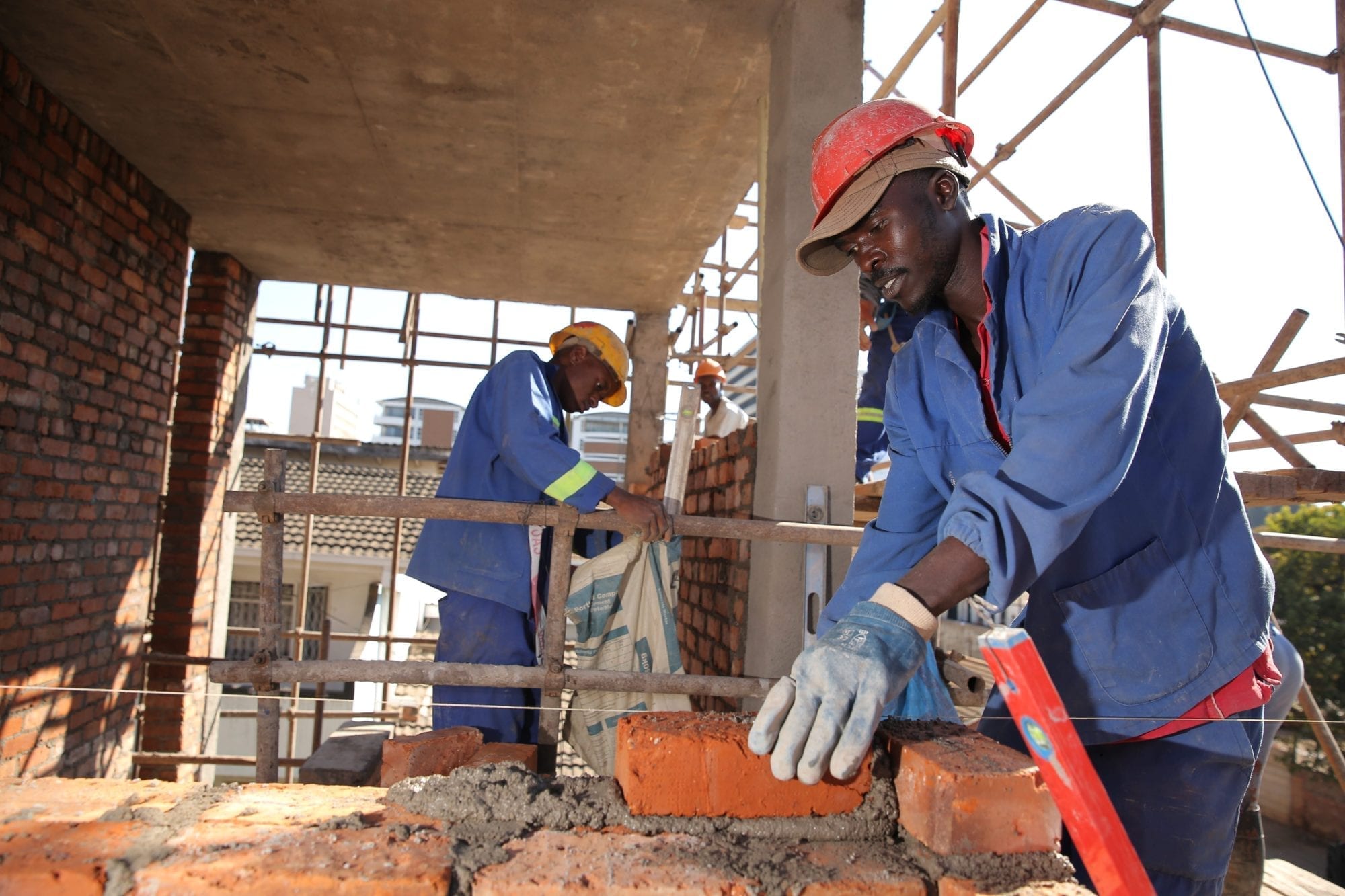
Jun 21, 2018
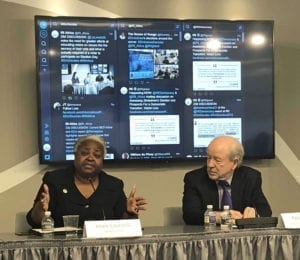
Solidarity Center Africa Regional Program Director Imani-Countess and NDI’s Patrick Merloe discussed challenges to democratic transition in Zimbabwe. Credit: Solidarity Center/Shayna Greene
Wage theft and other forms of economic injustice are among the major factors holding Zimbabwe back from a democratic transition, says Imani Countess, Africa regional program director for the Solidarity Center.
Countess spoke at a recent panel discussion in Washington, D.C., “Assessing Zimbabwe’s Election and Prospects for a Democratic Transition,” organized by the National Endowment for Democracy (NED). Bringing a labor perspective to the event, Countess described the strong correlation between increased participation in unions and the formation of other democratic institutions.
“There’s absolutely a link between democratic structures, the nature of unions and the role they play in the workplace, and in the nation and the fostering of broader democratic participation, particularly in elections,” says Countess.
Undemocratic practices flourish when workers are trapped in a cycle of economic inequality. Countess gave the example of 200 Zimbabwean women who experienced this type pf hardship firsthand after their husbands had not been paid for five years by the Hwange Colliery Co. Ltd. (HCCL). The company is one of the biggest in Zimbabwe, with the government as its largest shareholder.
Despite exporting to 13 nations including South Africa and China, HCCL owed its workers $70 million in unpaid wages. Often, companies will try to look attractive to foreign investors with competitive prices by engaging in forced labor and wage theft, Countess says.
Company’s Wage Theft Forced Families Turned to Informal Economy
The wives of the HCCL workers first protested in 2013 and were attacked by police. When they began protests again in 2018, they were joined by the Center for Natural Resource Governance, the National Mine Workers Union of Zimbabwe (NMWUZ) and the Zimbabwe Congress of Trade Unions.
Although the mine workers are not union members, Zimbabwe unions stood by the women because they were “the wives of workers,” says Countess. “So the National Union of Mine Workers was there.”
To help feed their families, the women took on informal jobs such as selling in markets and cross-border trading. About 94 percent of Zimbabweans work in the informal economy. Of the 6 percent working permanent jobs, one-third are exposed to wage theft, especially in the extractive sector, says Countess.
“For five years, these women subsidized the Hwange Colliery Co. by supporting their husbands’ ability to work without pay,” she says.
Civil society groups helped mobilize the women in their campaign through workshops on nonviolent strategies for resistance and other skills-building strategies, and opportunities to exchange experiences with women in other mining communities.
Finally, demands were met, ensuring that the women’s husbands were paid and not retaliated against for the actions of their wives.
This is only one example of how unions promote democracy in Zimbabwe despite the country’s challenges, says Countess. Though Zimbabwe is a militarized state with an unenforced constitution, union members are active in community organizations and serve in national election observation groups. For instance, in 2013, unions came together representing 15 countries in the Southern Africa Trade Union Coordination Council (SATUCC) region to participate in an observation mission in Zimbabwe.
“Mass-based organizations working together with communities can be powerful actors of change,” says Countess.
Also on the panel were Patrick Merloe, senior associate and director for Electoral Programs at the National Democratic Institute, and Elizabeth Lewis, deputy director for Africa at the International Republican Institute.





